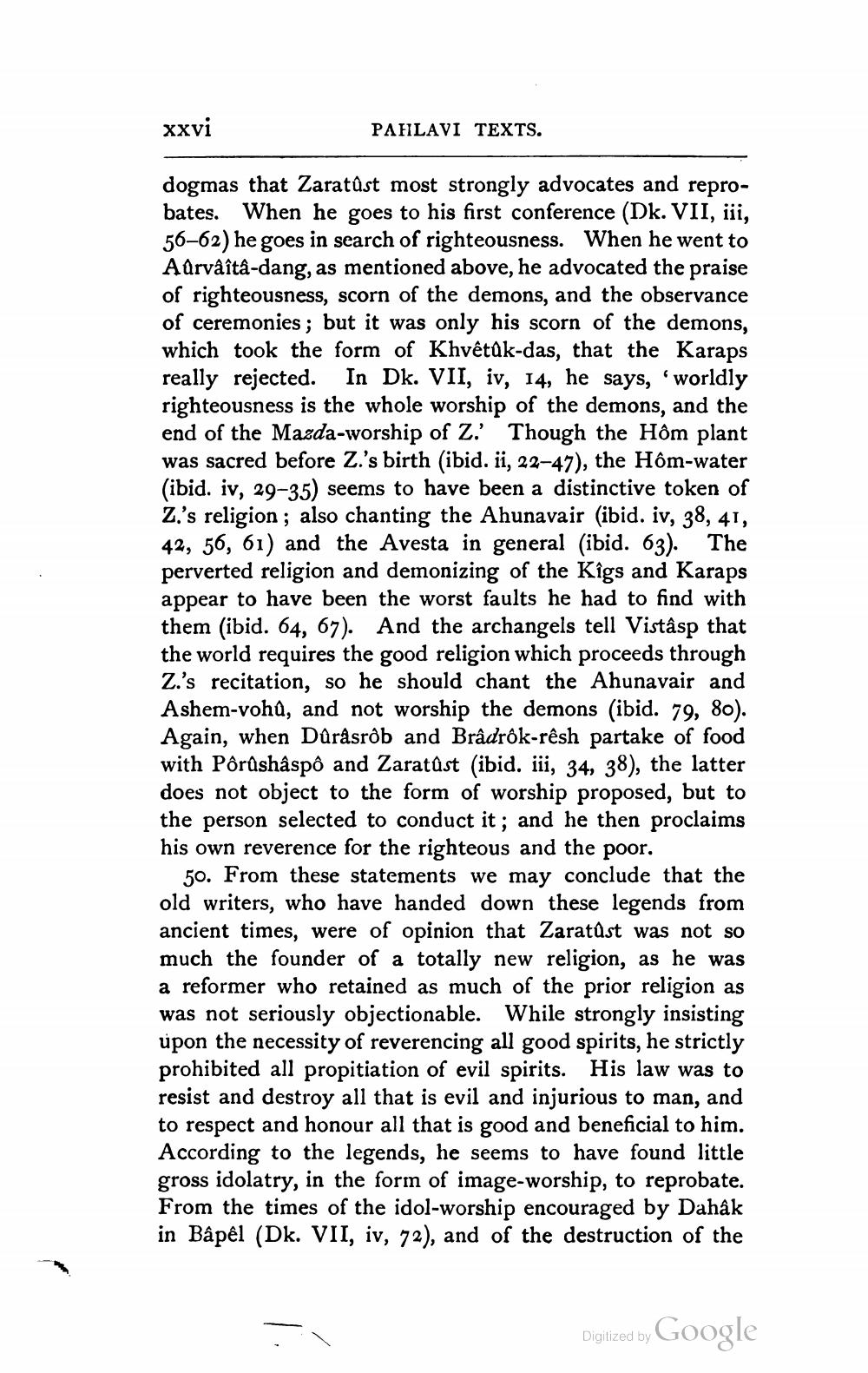________________
xxvi
PAHLAVI TEXTS.
dogmas that Zaratûst most strongly advocates and reprobates. When he goes to his first conference (Dk. VII, iii, 56–62) he goes in search of righteousness. When he went to Adrvâîtâ-dang, as mentioned above, he advocated the praise of righteousness, scorn of the demons, and the observance of ceremonies; but it was only his scorn of the demons, which took the form of Khvêtûk-das, that the Karaps really rejected. In Dk. VII, iv, 14, he says, 'worldly righteousness is the whole worship of the demons, and the end of the Mazda-worship of Z: Though the Hôm plant was sacred before Z.'s birth (ibid. ii, 22-47), the Hôm-water (ibid. iv, 29-35) seems to have been a distinctive token of Z.'s religion ; also chanting the Ahunavair (ibid. iv, 38, 41, 42, 56, 61) and the Avesta in general (ibid. 63). The perverted religion and demonizing of the Kîgs and Karaps appear to have been the worst faults he had to find with them (ibid. 64, 67). And the archangels tell Vistâsp that the world requires the good religion which proceeds through Zi's recitation, so he should chant the Ahunavair and Ashem-voha, and not worship the demons (ibid. 79, 80). Again, when Dûrâsrôb and Brâdrôk-rêsh partake of food with Pôrůshâspô and Zaratûst (ibid. iii, 34, 38), the latter does not object to the form of worship proposed, but to the person selected to conduct it; and he then proclaims his own reverence for the righteous and the poor.
50. From these statements we may conclude that the old writers, who have handed down these legends from ancient times, were of opinion that Zaratûst was not so much the founder of a totally new religion, as he was a reformer who retained as much of the prior religion as was not seriously objectionable. While strongly insisting upon the necessity of reverencing all good spirits, he strictly prohibited all propitiation of evil spirits. His law was to resist and destroy all that is evil and injurious to man, and to respect and honour all that is good and beneficial to him. According to the legends, he seems to have found little gross idolatry, in the form of image-worship, to reprobate. From the times of the idol-worship encouraged by Dahâk in Bâpêl (Dk. VII, iv, 72), and of the destruction of the
Digitized by Google




